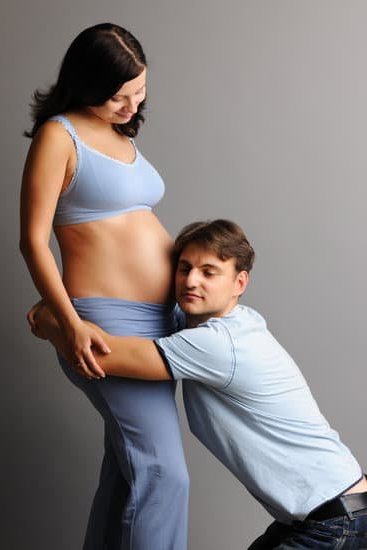Pregnancy is a miraculous journey that brings about significant changes, both physically and emotionally, for a woman. One of the most anticipated moments during pregnancy is the visible sign of a growing belly, affectionately known as the baby bump. Women often wonder, “When start showing pregnancy?” as they eagerly await this tangible evidence of their little one developing within.
From the early signs of pregnancy to the development of the baby in the first 12 weeks, expecting mothers experience a whirlwind of emotions and physical changes. Hormones go into overdrive, causing various symptoms such as morning sickness and fatigue. It is during this crucial period that the baby’s growth and development are rapid, laying the foundation for all future milestones.
As each week passes, the anticipation of when the baby bump will reveal itself grows stronger. Factors such as body type, previous pregnancies, and individual differences play a role in determining when a woman starts showing pregnancy. Embracing these changes with love and care is essential for both physical well-being and mental health throughout this exciting journey towards motherhood.
Early Signs of Pregnancy
Pregnancy is a miraculous journey that brings about significant changes in a woman’s body and life. During the early stages of pregnancy, before the baby bump starts to show, there are several signs and symptoms that women may experience as their body begins to adjust to this new phase.
Missed Period
One of the most common early signs of pregnancy is a missed period. When a woman misses her regular menstrual cycle, it can be a strong indicator that she may be pregnant. It is essential to take a pregnancy test to confirm this suspicion and seek medical advice from healthcare professionals.
Nausea and Fatigue
Another early sign of pregnancy is experiencing nausea, commonly known as morning sickness, and fatigue. Women may feel more tired than usual, even after getting enough rest, and can experience nausea or vomiting throughout the day. These symptoms typically subside after the first trimester for many women.
Changes in Breast Sensitivity
Many women notice changes in their breasts during early pregnancy. The breasts may become tender, swollen, or sensitive to touch due to hormonal changes. Some women also experience darkening of the areolas or noticeable veins on the chest area. These changes are normal as the body prepares for milk production when the baby arrives.
Development of the Baby
Pregnancy is a miraculous journey that brings about incredible changes in a woman’s body as she nurtures a new life within her. During the first 12 weeks of pregnancy, often referred to as the first trimester, significant developments occur in the baby’s growth and the mother’s body.
From the moment of conception, when the fertilized egg implants itself in the uterus, to the formation of vital organs and systems, these initial weeks are crucial for laying the foundation of a healthy pregnancy.
As early as week 4, when many women may not even be aware they are pregnant yet, the baby’s neural tube begins to form along with the heart, which starts beating by week 6. By week 8, all major organs have begun to develop and tiny limbs start to take shape.
The baby is now referred to as an embryo and grows rapidly in size during this period. Around week 12 marks the end of the first trimester, where most of the baby’s essential structures have formed, and it transitions into the fetal stage.
Throughout these crucial weeks of development, expectant mothers might experience a range of symptoms such as nausea, fatigue, frequent urination, and mood swings due to hormonal changes in their bodies. It is important for pregnant women to receive prenatal care early on to monitor both their own health and that of their growing baby. With proper nutrition, rest, and medical guidance, these initial stages set a strong foundation for a healthy pregnancy ahead.
| Weeks | Key Developments |
|---|---|
| Week 4 | Implantation; Formation of neural tube and heart |
| Week 8 | Development of major organs; Limb formation |
| Week 12 | Nearing end of first trimester; Transition to fetal stage |
Changes in the Mother’s Body
During pregnancy, a woman’s body undergoes numerous changes both on a hormonal level and physically. These changes are necessary to support the growth and development of the baby. Hormones play a crucial role in maintaining the pregnancy and preparing the body for childbirth. The physical symptoms experienced by expectant mothers can vary from person to person, but they are generally part of the natural process of pregnancy.
Hormonal Changes
One of the key hormonal changes that occur during pregnancy is an increase in levels of human chorionic gonadotropin (hCG). This hormone is produced by the placenta shortly after implantation occurs, and it is responsible for maintaining the early stages of pregnancy.
As pregnancy progresses, other hormones such as estrogen and progesterone also rise to support fetal development and prepare the body for birth. These hormonal changes can lead to a range of symptoms including nausea, breast tenderness, and mood swings.
Physical Symptoms
In addition to hormonal changes, pregnant women also experience a variety of physical symptoms. Some common physical symptoms during early pregnancy include fatigue, frequent urination, and food cravings or aversions. As the uterus expands to accommodate the growing baby, mothers may also notice round ligament pain or backaches. Furthermore, weight gain, stretch marks, and swelling in the ankles and feet are common physical changes that occur throughout pregnancy.
When Does the Baby Bump Start to Show?
The actual appearance of a baby bump varies from woman to woman depending on factors such as body type, muscle tone, and whether it’s her first pregnancy or subsequent ones. In general, first-time mothers may begin showing around 12-16 weeks into their pregnancy when their uterus starts to move up out of their pelvis. Women who have been pregnant before may start showing sooner due to their already stretched abdominal muscles.
When Does the Baby Bump Start to Show?
When you’re expecting a baby, it’s natural to wonder when you will start showing signs of pregnancy. While every woman is different, the timeline for when a baby bump becomes noticeable can vary.
Typically, first-time mothers may start showing between 12-16 weeks, while women who have been pregnant before may show as early as 8-12 weeks. Keep in mind that factors such as body type, weight, and muscle tone can also affect when your pregnancy becomes visible.
To give you a better idea of when you might start showing during your pregnancy journey, here are some key points to consider:
- First Trimester: During the first trimester, changes in your body are more subtle. Your uterus is still tucked behind your pelvic bone and may not be noticeable from the outside.
- Second Trimester: This is typically when most women begin to show. Your uterus expands upwards and outwards during this time, due to the growth of your baby.
- Third Trimester: By the third trimester, your baby bump will be more prominent as your baby continues to grow. It’s during this time that others around you will likely recognize that you’re pregnant.
It’s important to remember that every woman’s pregnancy journey is unique, and there is no right or wrong time to start showing. Embrace the changes happening in your body and enjoy watching your belly grow as it signifies the incredible journey of bringing a new life into the world. Remember to stay positive and confident in your changing body – it’s all part of the miracle of pregnancy.
Factors Affecting When a Woman Starts Showing Pregnancy
During pregnancy, it is natural for soon-to-be mothers to anticipate the moment when their baby bump starts to show. The timing of when a woman begins to visibly show signs of pregnancy can vary greatly from person to person. Understanding the factors that can affect when a woman starts showing pregnancy can provide insight into this exciting stage of the journey.
Here are some key factors that can influence when a woman’s baby bump becomes noticeable:
- Body Type: Women with a smaller frame may start showing their pregnancies earlier than those with a larger build. This is because there is less space for the growing uterus to expand in a petite body.
- Number of Pregnancies: For women who have been pregnant before, their abdominal muscles may be more relaxed, causing them to show earlier in subsequent pregnancies compared to first-time mothers.
- Position of the Baby: The position of the baby in the uterus can also impact when a woman starts showing pregnancy. If the baby is positioned towards the back or closer to the spine, it may take longer for the bump to become visible.
Other factors such as genetics, weight gain during pregnancy, and overall health can also play a role in determining when a woman begins to show signs of pregnancy. It’s important to remember that each pregnancy is unique, and there is no “right” time for a baby bump to appear.
Understanding these factors can help expectant mothers embrace their changing bodies and appreciate the journey of pregnancy as it unfolds. Remember, every pregnancy is different, so celebrate your own experience and enjoy watching your bump grow over time.
Tips for Embracing Your Growing Belly
Throughout the course of pregnancy, women experience various physical changes as their bodies adapt to growing a new life inside them. One significant milestone that many expectant mothers eagerly anticipate is when they start showing signs of pregnancy. This moment is often filled with excitement and can be a turning point in the journey to motherhood.
Typically, first-time mothers may begin to notice their baby bump starting to show around the 12 to 16-week mark of pregnancy. However, this timeline can vary depending on individual factors such as body type, muscle tone, and the position of the uterus. Women who have been pregnant before may start showing earlier due to the muscles in their abdomen being more relaxed.
Factors affecting when a woman starts showing pregnancy also include genetics and overall health. Genetics play a role in how a woman carries her baby and how large her baby bump appears.
Additionally, women who are more physically active or have strong abdominal muscles may take longer for their baby bump to become noticeable compared to those who have weaker abdominal muscles. It is essential for expectant mothers to embrace their unique journey as their body goes through these changes in preparation for motherhood.
| Factors Affecting When Showing Pregnancy | Impacts |
|---|---|
| Body type | Affects how prominent the baby bump appears |
| Muscle tone | Weaker abdominal muscles can lead to an earlier show of pregnancy |
| Genetics | Influences how a woman carries her baby |
Conclusion
As women embark on the exciting journey of pregnancy, one of the most anticipated moments is when their baby bump starts to show. The physical manifestation of carrying a new life within oneself is a momentous occasion that brings joy, anticipation, and sometimes a bit of anxiousness. For many expectant mothers, the first signs of showing pregnancy are not just about the changes in their bodies but also a visible symbol of the new chapter in their lives.
The timing of when start showing pregnancy varies from woman to woman and can be influenced by factors such as body type, muscle tone, and whether it’s a first pregnancy or subsequent ones. Some women may start to show as early as 12 weeks, while others may not have a noticeable bump until well into their second trimester. Regardless of when it happens, each mother’s journey is unique and special in its own right.
Embracing your growing belly is an important part of the pregnancy experience. It signifies the miraculous process happening within your body and serves as a visible reminder of the life you are nurturing. Remember to take care of yourself mentally and physically during this time, cherish each moment as your body changes, and look forward to meeting your little one when the time comes. Pregnancy is truly a remarkable journey filled with wonder and love.
Frequently Asked Questions
Can You Start Showing at 8 Weeks?
Typically, most pregnant women do not start showing a noticeable bump until around 12-16 weeks of pregnancy. However, some women may start showing as early as 8 weeks, especially if it is not their first pregnancy and their abdominal muscles have already been stretched.
How Early Can You Start Showing a Bump?
The timing of when a pregnant woman starts showing a bump can vary from person to person. For first-time mothers, the baby bump may start becoming noticeable around 12-16 weeks. However, women who have had previous pregnancies may start showing earlier, sometimes as early as 8-10 weeks.
Can You Start Showing at 10 Weeks?
At 10 weeks of pregnancy, many women may not be showing a significant baby bump yet. However, some women who are particularly thin or have had previous pregnancies may start showing at this point. Factors like genetics, body type, muscle tone, and the position of the uterus can all play a role in when a woman starts showing during pregnancy.

Welcome to my fertility blog. This is a space where I will be sharing my experiences as I navigate through the world of fertility treatments, as well as provide information and resources about fertility and pregnancy.





